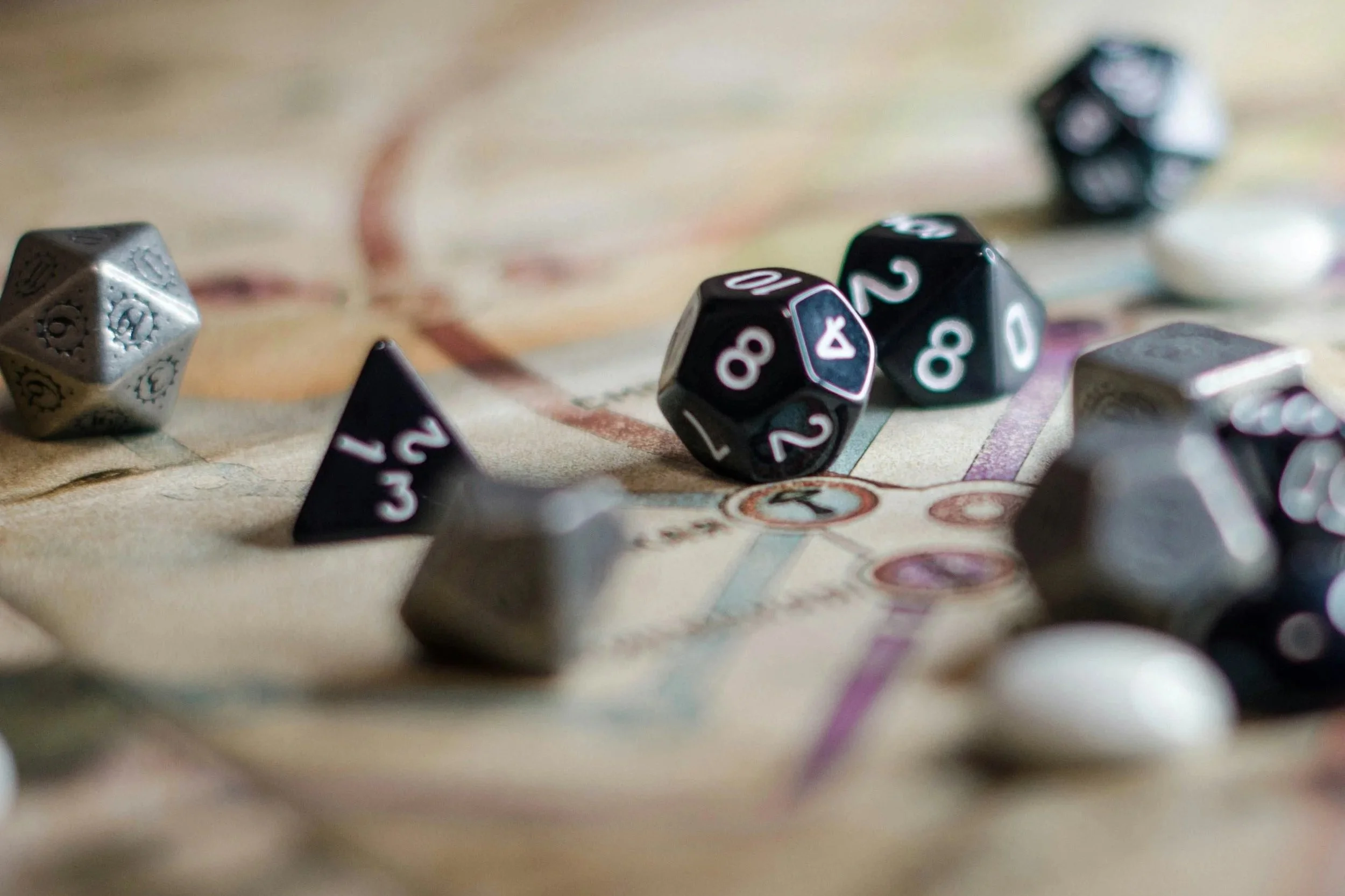neuro-affirming TTRP groups
Play, identity and connection:
How neuro-affirming tabletop role-playing groups help young people.
Tabletop Role-Playing Games (TTRPGs) i.e. Dungeons & Dragons and other story-driven games, are more than just for entertainment. For many young people, especially those who are neurodivergent, a thoughtfully run TTRPG group can be a safe, fun and powerful way to learn emotional skills, explore identity and connect with others, without being asked to hide who they are.
TTRPGs work because they let people try things in a low-stakes world. Players make choices, see what happens, and try again. That “try, reflect, try again” loop is great for practicing real skills: calming down when stressed, handling conflict, or speaking up for what you need. Doing this inside a story feels less scary than trying it for the first time in real life.
A neuro-affirming approach is central to this kind of group. That means we start from the belief that differences in thinking, sensing and communicating are valid - not problems to be “fixed.” Instead of pushing everyone to act the same way, a neuro-affirming group sets up the environment and supports so each person can join in naturally. That might mean clear rules and visuals, options to communicate by text or voice, quiet break times, or letting someone take a non-speaking role like map-keeper. The aim is participation on each person’s terms.
Role-playing a character is a gentle, creative way to explore identity. Making a character and deciding who they are gives players room to experiment with different ways of being and to notice what feels true to them. That can help people better understand their own values and strengths, and it often helps them see connections between the things they do in the game and the person they are outside the game.
One of the biggest benefits is connection, and it’s not about forcing small talk or copying someone else’s way of being. Group play builds many kinds of connection: working together on a quest, trading ideas on how to solve a puzzle, or quietly supporting a teammate. These are all real ways of belonging. Importantly, therapists and facilitators who show genuine interest in what a player cares about, such as, asking about a character choice, noticing a player’s idea or celebrating a small win, can create a safe platform where players can open up and reflect. That kind of honest curiosity builds trust and makes it easier for players to try new skills, because they know someone sees and values their authentic self.
Game encounters can also be used to practice useful life skills but done carefully and with consent. Short, gentle challenges can invite players to use breathing or grounding strategies, try simpler ways to ask for what they want, or test handling frustration in a supported space. These exercises are always optional and scaled to each person so nobody is pushed into an uncomfortable situation.
The role of the facilitator (often a clinician or trained leader) is to make the space predictable and safe, to design scenes that invite practice without pressure, and to coach and reflect with players afterward. They act as a co-player and guide rather than an authority who tells people how they should be. Progress is measured in ways that matter to each individual (i.e. feeling more confident to try things, using a coping strategy when stressed, or finding new ways to connect with others) not by forcing everyone to meet the same social standard.
Safety and consent are key. Good groups check in often, offer alternative roles, and make sure any potentially upsetting scenes are optional and well supported. Stories are chosen to be inclusive and culturally respectful, so everyone can see themselves in the play.
In short, neuro-affirming TTRPG groups give young people a fun and respectful space to practice skills, explore who they are, and connect with others, all while being themselves. If you’re curious about trying a group, our program offers sensory accommodations, clear structure, and facilitators who emphasise choice, consent and genuine interest in the players. It’s an environment where play becomes a real path to understanding, confidence and connection.
No prior gaming experience required - just bring your curiosity and imagination.
SPACES ARE LIMITED, CONTACT US TODAY TO BOOK YOUR SPOT OR LEARN MORE!
References
Boccamazzo, R., & Connell, M. (2020). Transtheoretical model of tabletop role playing games continuing education presentation available from Geek Therapeutics https://therapeuticgamemaster.com/
Bowman, S. L. (2010). The functions of role-playing games: How participants create community, solve problems and explore identity (1st ed.). McFarland.
Connell, M. A. (2023). Tabletop role-playing therapy: A guide for the clinician game master. W. W. Norton & Company.
Crow, M. L., & Nelson, L. P. (2015). The effects of using academic role-playing in a teacher education service-learning course. International Journal of Role-Playing, 5, 26–34.
McGonigal, J. (2011). Reality is broken: Why games make us better and how they can change the world (1st ed.). Penguin.

